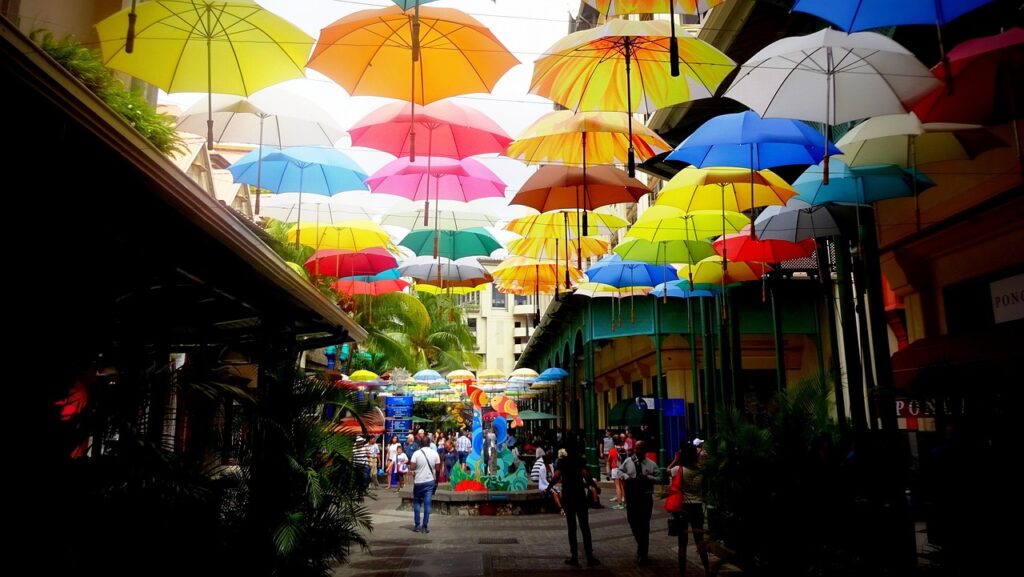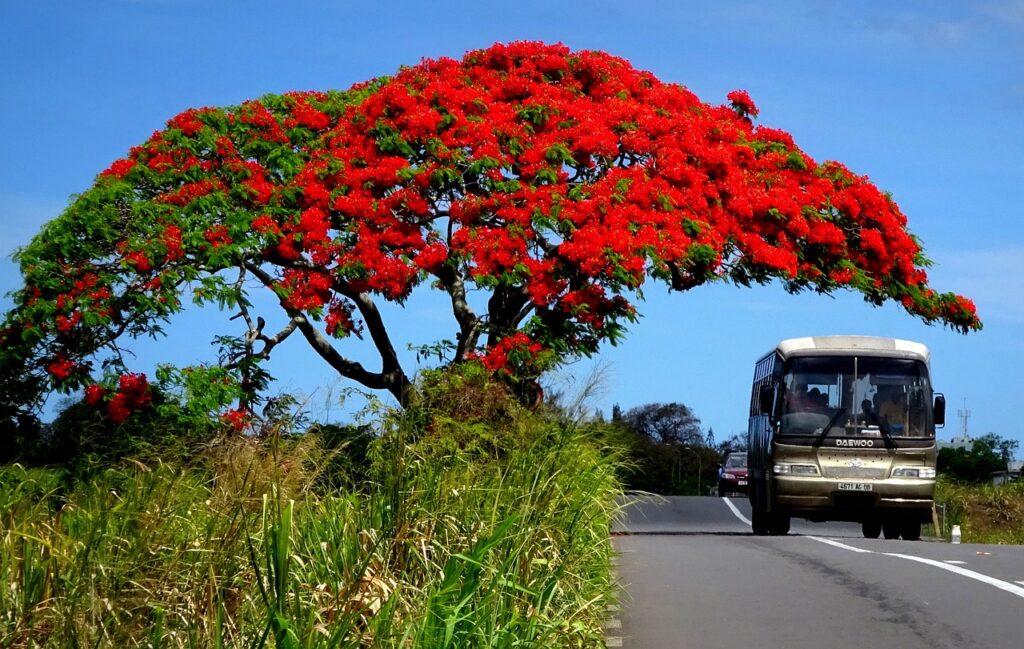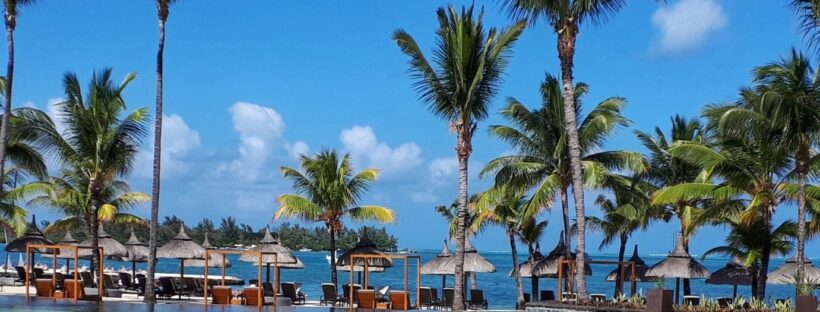Foreigners can live permanently in Mauritius as a retiree, working professional, investor, self-employed, or as a dependent. By applying for a permit under one of these categories, foreigners can live in Mauritius for a maximum of 10 years, with the option to renew their permits. Retired foreigners and those on an occupation permit can also apply for a 20-year residence permit after 3 years on their existing permit, subject to satisfying some criteria. Also, foreigners can live in Mauritius for 20 years by putting in at least USD 375,000 in a business activity. Another pathway to living permanently in Mauritius is by buying a property of at least USD 375,000 in an approved scheme, which gives the foreigner the right to live here as long they own the property.
Here, at TBI Mauritius, we have assisted numerous foreigners to transition to live in Mauritius and we are able to provide a balanced view and help you make an informed decision. We understand that moving to a new country is never easy and Mauritius has its own challenges. We provide a full relocation service where we guide you through the correct permit or visa to apply for, the application process, verification of documents, finding accommodation, setting up a bank account, setting up a business, investing in real estate, choosing the right school, pet relocation, and others. Get in touch. This article provides an insight into the pros and cons of living in Mauritius.
Quick Navigation
- Cultural and Social Landscape
- Weather and Climate
- Safety and Security
- Lifestyle
- Healthcare
- Transportation
- Housing and Accommodation
- Job Market and the Economy
- Living in Mauritius with Children
- Education
- Cost of Living
- Taxation in Mauritius
- Bringing Pets
- Investing in Mauritius
- Living in Mauritius as a Retiree
2. Weather and Climate
Another pro of living in Mauritius is the pleasant year-round climate. Living in Mauritius means experiencing a tropical climate that varies throughout the year. From January to March, the island experiences tropical heat with its cyclone season, characterised by hot and wet conditions. Tourist numbers peak during this period. April and May bring a transition to milder weather, with slightly cooler temperatures and fewer crowds. Cyclone risks are lower, offering a more comfortable environment for outdoor activities. From June to September, Mauritius experiences its winter, with daytime highs in the high 20s and cooler evenings. October and November provide an ideal transition with rising but still comfortable temperatures, and minimal rainfall. December sees festive celebrations amidst the increasing heat, making it a lively time on the island. It is worth mentioning that in 2023, Mauritius was one of the 7 countries worldwide to meet the stringent air quality guidelines by the WHO (World Air Quality Report, 2023).
Cons of living in Mauritius: The cyclone season from January to March can bring heavy rainfall and strong winds, posing risks to residents and property. Cyclones, although infrequent, can cause disruptions and damage to infrastructure. We have a whole article dedicated to the weather and climate in Mauritius here.
3. Safety and Security
One of the pros of living in Mauritius is the generally safe environment, with most people feeling secure in their daily lives. Compared to many western countries, crime rates are significantly lower in Mauritius. Walking alone at night is more comfortable, especially in the North and the West, where most expats live. However, like anywhere in the world, there are still some risks to consider. In Mauritius, the primary concerns for expats are burglaries and pickpocketing. Burglaries are mostly opportunistic and unsophisticated, often occurring when residents are out or asleep. Expats are generally relaxed as they often reside in residential estates and developments with heightened security measures, such as installing bars near windows and doors or having a dog, making it hard for intruders to enter. Pickpocketing incidents are more common in busy areas and markets such as Port Louis. The risks of both are still very low in comparison to most countries globally.
4. Lifestyle
One of the pros of living in Mauritius is the variety of activities suitable for people of all ages. Whether you like relaxing on beaches or trying water sports like snorkelling and surfing, there’s something for everyone. Additionally, the cultural scene provides many chances to enjoy events, including food festivals with dishes from different cultures. For outdoor people, Mauritius has exciting adventures like kite surfing and scuba diving by the sea and hiking and biking in the countryside.

Exploring Mauritian culture reveals a variety of traditions and festivals to enjoy. From celebrations like Divali and Chinese New Year to events like Maha Shivaratri, there’s always something happening. Food lovers will enjoy trying different cuisines like Indian, Chinese, Creole, and European dishes, all mixed together to make tasty meals. Plus, the expat community in Mauritius hosts many social events, making it easy to meet new people and make friends.
Cons of living in Mauritius: While the beaches are beautiful, they can get crowded on weekends and holidays. Also, some expatriates may find it challenging to adjust to the slower pace of life and cultural differences. Moreover, the lack of pavement in certain regions can make it difficult to walk to some places. Regardless of this, with the combination of buses and walking on the coast, this is not a major disadvantage.
5. Healthcare
When it comes to healthcare, you will find a variety of options in Mauritius. There are 5 public hospitals across the island, providing free access to medical services. While private hospitals may be more expensive, they offer excellent care and facilities. In fact, Mauritius has become known for medical tourism due to the high standard of care available. For example, the Moka region has the largest private hospital, Wellkin Hospital, and a renowned ophthalmology facility, Moka Eye Hospital. Primary care providers are located within close proximity to most areas. We always recommend foreigners to use private healthcare due to the better quality of service and long waiting lists for public health services. Private medical insurance is of good value in Mauritius and there are good policies for foreigners. For those thinking of living in Mauritius and of getting health insurance, we can get you into contact with some providers to help find the most suitable option.

6. Transportation
Getting around in Mauritius is relatively simple, particularly for those who prefer not to drive. Public transportation, although not perfect, allows residents and visitors to navigate the island without needing a car. The recently built tramway in central areas provides a convenient option for traveling within specific parts of the island, avoiding traffic congestions. We recommend foreigners to buy a car early on if they have made the decision to live here permanently. Taxis and buses can be affordable but the flexibility of having your own car is the only way to have independence here.
Cons of living in Mauritius: Buses are often overcrowded, slow-moving, and inconvenient, especially for those who value flexibility and efficiency. Additionally, the lack of alternatives like Uber or scooter taxis limits options for those seeking convenient and affordable transportation. Traffic congestion, particularly in suburban areas like Port Louis, can lead to long wait times and frustration for commuters.
7. Housing and Accommodation
When it comes to finding a place to live in Mauritius, you have many options, from apartments to luxurious villas, catering to different preferences and budgets. Coastal areas like Grand Baie and Tamarin are popular choices, offering proximity to beaches and amenities. Accommodation in these popular areas is more expensive and those in inland areas provide better value for money. The North and West of the island are the most common regions for expats. Click here to learn how both regions differ. Renting is common with almost all rental options being fully furnished. Purchasing property is a better option for those considering living in Mauritius permanently. Foreigners can live permanently in Mauritius if they purchase a property of at least USD 375,000 in an approved scheme since they can live here as long as they own the property.
Cons of living in Mauritius: Finding suitable accommodation can be time-consuming for foreigners planning to live in Mauritius. Moreover, some real estate agents are not necessarily fully reliable. Hidden costs can also crop up unexpectedly, adding financial stress to the process. At TBI, we make sure to carefully vet the partners and the agents we work with. The process can be slow, since it can take time to find a property as per your preferences but we guarantee reliability and transparency. More on Mauritius real estate here.
8. Job Market and the Economy
In Mauritius, the job market is not as vast as you might find in larger countries. It’s a relatively small island nation, so there are not as many job opportunities available compared to bigger economies. For foreigners, finding well-paying jobs can be particularly challenging due to the competition and the preference for hiring local talent. Additionally, the work permit regulations adds another layer of complexity for foreigners looking for jobs. However, there are still ways to make a living in Mauritius. To live in Mauritius, foreigners have the choice of working for a Mauritian company provided that they earn at least MUR 30,000. Alternatively, they can be self-employed provided that they put in at least USD 35,000. Foreign entrepreneurs and investors also have the option to set up their own business by putting in at least USD 50,000 in the business. Click here to learn more. For those thinking of living in Mauritius as a digital nomad and working remotely, this article provides some useful information.
9. Living in Mauritius with Children
When it comes to living in Mauritius with children, this island offers numerous pros for parents, including safety, schools, childcare options, and kids-friendly activities. We have addressed the safety factor in number 3. As for schooling options for the young ones, we have provided some information on the international schools in Mauritius in this article. Mauritius also has many private nurseries, kindergartens and daycare centres. The staff in these facilities are qualified childcare professionals with experience in early childhood education, with most of them being bilingual in English and French. Mauritius also provides a rich environment for your children to grow up in, going beyond just academic success. There’s a variety of activities for your kids to enjoy, either individually or as a family. Some of the most preferred places for family time are: Casela Nature Park, La Vanille Nature Park, the Odysseo Oceanarium, and the Gravity Max leisure complex.

10. Education
The education system in Mauritius follows the Anglo-Saxon model and is divided into 3 phases – primary, secondary and tertiary education. Schooling in Mauritius is free and compulsory up to the age of 16. Public schools are an option, but many foreigners choose private schools. French schools like École du Nord, Lycée Labourdonnais, and others offer a traditional French curriculum. For a global learning environment with diverse programs, international schools like Northfields, Le Bocage, Greencoast and many more are available. Please note that there are long waiting lists for these schools; enrolling your child in a school here is something that needs to be looked at early on. The article linked here, provides a list of private English-speaking schools and French-speaking schools in Mauritius. When it comes to tertiary or higher education, Mauritius has a range of options, with several institutions partnering with internationally recognised institutions. Foreigners have several institutions to choose from. Public institutions include the University of Mauritius, Universite des Mascareignes, the University of Technology, among others. Private institutions include Curtin Mauritius, Middlesex University, UNICITI, Vatel and others. Choosing the right school for your child is a deeply personal decision since you have to consider your child’s age, preferred curriculum and location. Research your options thoroughly and perhaps reach out to other expats who have enrolled their kids in these schools.
11. Cost of Living
Living in Mauritius may come with some financial adjustments, but the overall cost of living in Mauritius is still relatively reasonable compared to many other countries. Despite potentially lower salaries, expats can maintain a comfortable standard of living without overspending. Basic food products are reasonably priced, with luxury items being more expensive due to being imported. While living expenses in Mauritius may be lower than in some Western nations, they can be higher compared to other African countries and popular expat destinations in Southeast Asia. For instance, housing and imported goods, tend to be around 30% more expensive due to imports from countries like France, Australia, or South Africa. Dining out can also be costly. Additionally, services such as yoga, spas, and gyms often come with premium price tags due to a shortage of professionals and a focus on luxury tourism. Car prices are notably higher too, due to a high import duty. Expect double the price you would pay in Europe for a luxury car, although hybrid and electric cars are now exempt of duty. Nonetheless, living in Mauritius remains more budget-friendly than many other low-tax destinations. According to Numbeo, consumer prices in Mauritius are significantly lower than in countries like Germany and the United Kingdom, with rent, groceries, and restaurant prices also reflecting the lower cost of living. Rent prices in Mauritius are 58% lower than in Germany and 67% lower than in the United Kingdom. To live comfortably in Mauritius, a family of 4 will need to earn around USD 50,000 to 70,000 per year. This will allow you to afford a good quality of life, including healthy food, and access to good education and healthcare.
12. Taxation in Mauritius
Mauritius is generally a low tax jurisdiction. As of July 1, 2023, Mauritius introduced a progressive tax system for individuals. The tax rates range from 0% for the first MUR 390,000 and operate a sliding scale up to 20%. Unlike some countries, Mauritius does not levy taxes on capital gains or estates/ death. After living in Mauritius for more than six months in a tax year, you become a tax resident. Tax is on a remittance basis but there is then a distinction between active and passive income. If you repatriate funds to Mauritius that have already been taxed elsewhere, you won’t face additional taxation on those funds subject to the relevant DTAs.
Corporations in Mauritius are taxed at a flat rate of 15% but often as little as 3% depending on the activity. There are also various tax holiday schemes for numerous activities from Family Offices to creating IP in Mauritius. Trading companies only pay 3% corporation tax on the movement of physical goods from one jurisdiction to another without ever having to bring the products to Mauritius. Another significant advantage is that there is no tax on dividends in Mauritius received from Mauritian companies, so if you are a business owner, your maximum tax for both corporation tax and personal income is between 3 and 15% if you pay yourself dividends. As a base to invest or lend into Africa, there is nowhere that really compares to the amount of regional and bilateral treaties that there are.
13. Bringing pets
Living in Mauritius with your pet requires some preparations beforehand. Puppies and kittens must be at least 7 months old for travel, ensuring their maturity and comfort during relocation. Planning ahead includes obtaining an import permit from the Ministry of Agro-Industry and Food Security (minimum 3 months before departure). Remember, your pet must be microchipped and have up-to-date rabies vaccinations. An original International Veterinary Certificate is also required. Certain dog breeds like American Pit Bull Terriers are not allowed entry. Additionally, your pet will have to be quarantined upon arrival in Mauritius, which can range from 5 to 30 days depending on your origin country. A health certificate issued within 48 hours of departure, confirming treatment against parasites, is another requirement. Finally, after settling in, you will need to register your dog with the Mauritius Society for Animal Welfare to comply with local regulations. We have a detailed article on navigation the pet relocation requirements in Mauritius here.
14. Investing in Mauritius
As a foreigner, there are a lot of avenues for investing while you are living here. You can invest in residential property, commercial property and businesses. You can live in Mauritius by investing at least USD 50,000 in a business. This will get you a 10-year investor permit, renewable after meeting certain conditions. Alternatively, after 3 years on this permit, you can also apply for a 20-year permanent residence permit. Foreigners can also live permanently in Mauritius by buying a property of at least USD 375,000 in a government scheme. To learn more on how to live in Mauritius by investing, read here. We also have a page on the Mauritius real estate market here, detailing the different types of real estate investments available to foreigners. The latest rules for buying property as a foreigner are detailed here.
15. Living in Mauritius as a Retiree
The pros of living in Mauritius as a retiree are: access to medical facilities on-site, assisted living, and luxurious developments which include, restaurants, cafes and spas, conveniently located nearby. To retire here, you have to be above 50 years and show either a monthly income of USD 1,500 or have at least USD 18,000 in your bank account. You can choose between a 10-year retirement permit or a 1-year premium visa. As per the latest budget measure, you can also invest over USD 200,000 in a property. The property would have to be one in a Property Development Scheme. You will then be eligible for a residence permit that is valid as long as you own the property. Read more on living in Mauritius as a retiree here.
What TBI Business Advisors can do for you:
- We will have a Zoom/ Teams call or email exchange to understand your requirements.
- TBI will advise on the appropriate permit or visa for coming to Mauritius.
- We will send a detailed proposal with clear costs, timeframes and explanations.
- We will assemble the documents and make the application on your behalf.
- We can assist with relocation tasks such as helping with schools, accommodation, insurance, choosing locations.
- We can assist with the finding and purchasing of property, and setting up of an entity to purchase through.
- If you need assistance with setting up companies whether as an investor or just creating a business here.
- The directors can act as Commissioner for Oaths.
- We can assist with other business advice and can bring in law firms as and when required.
Please contact us via our website, via email to info@tbimauritius.com or via the form below.
While every effort is made to ensure that the information given is accurate, the information on this site does not contain legal, tax or any other professional advice. We accept no responsibility or liability due to any information or representation, whether accurate or not, relied upon in the contents. It is an information guide to provide the reader with a useful general, but basic understanding of the different considerations. You must seek local legal, tax or other professional advice before relying on the contents of this site.
